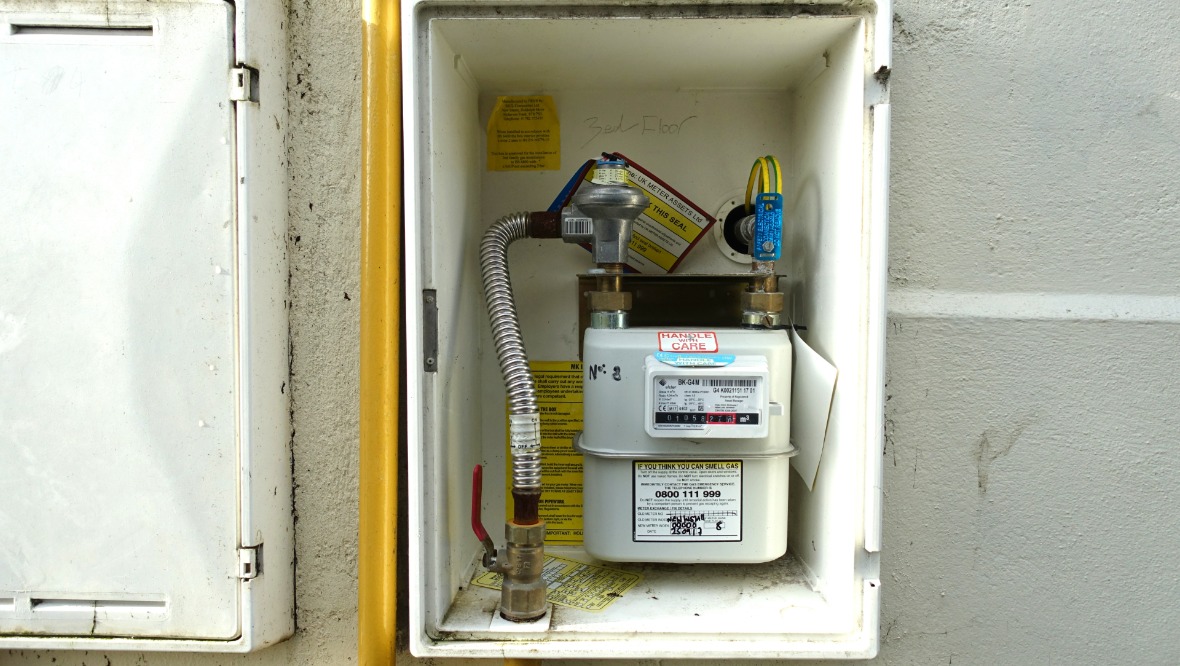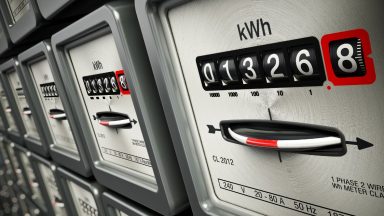Scottish households have been told they risk overpaying for energy if they do not submit meter readings, as a 10% price rise comes into force.
The average household energy bill increases by £149 a year from Tuesday, as Ofgem raises its price cap just as the winter months begin.
Accurate readings will prevent suppliers from estimating usage and applying new, higher prices to energy consumed when they were lower, Advice Direct Scotland said.
It comes after the regulator Ofgem announced in August it would hike its price cap from the current £1,568 for a typical household to £1,717 on Tuesday, October 1.
The average bill will rise by around £12 a month, or £149 a year, for a typical dual fuel household in England, Scotland and Wales.
People who did not submit readings before September 30 should do so as soon as possible and those with smart meters should ensure the device is working, Advice Direct Scotland said.
Suppliers who have not received meter readings base their bills on estimated usage, meaning households could be overpaying, while others may not be paying enough.
“Higher gas and electricity prices are a stark reminder that the energy crisis is far from over,” Andrew Bartlett, chief executive of Advice Direct Scotland, said.
“For many Scottish households, winter will be long and difficult, with no relief from high prices until at least spring 2025.
“Submitting your meter readings around October 1 will ensure you are charged correctly for energy used before and after the price cap change.
“Taking a dated photo of your meter for reference is helpful, and if you have a smart meter, make sure it’s functioning.”
The price cap sets a maximum price that energy suppliers can charge consumers for each kilowatt hour (kWh) of energy they use.
It does not limit total bills because householders still pay for the amount of energy they consume.
From October 1, households on a standard variable tariff who pay for their electricity by direct debit will pay on average 24.5p per unit, with a standing charge of 60.99p per day.
For gas, the average will be 6.24p per unit with a standing charge of 31.66p per day.
Ofgem said rising prices in the international energy market, because of heightened political tensions and extreme weather events, were the main driver behind the decision.
Millions of pensioners are also facing a winter with less support, after the new UK Government decided to scrap winter fuel payments for those who do not receive pension credits or other benefits.
The Scottish Government said it was forced to do the same as the cut was passed onto its budget.
About ten million pensioners will miss out on the payments of up to £300 this year.
Almost half of British adults (46%) say they are likely to ration their energy use this winter, using less than they should for maintaining comfort and wellbeing, according to a survey by fuel poverty charity National Energy Action (NEA) and YouGov.
NEA chief executive Adam Scorer said: “Millions of households face another dreadful winter, resigned to increasing energy debt or not heating their homes at all.
“We find ourselves stuck in a predictable loop of increasing prices and inadequate support.”
October’s price cap is significantly lower than during the peak of the energy crisis, which was fuelled by Russia’s invasion of Ukraine in February 2022, driving up costs in an already-turbulent market.
And in a glimmer of hope for households, experts have forecast a 1% fall in the cap in January, with further decreases expected over the following two quarters.
Ofgem chief executive Jonathan Brearley has urged people to “shop around” and consider a fixed-rate tariff that could save money, adding that the regulator was working with Government, suppliers, charities and consumer groups to do “everything we can” to support customers.
Citizens Advice has said it was particularly concerned about households with children and young people and those on lower incomes, who were most likely to struggle with their heating costs.
Comparison site Uswitch.com calculated that the average household on an SVT is expected to spend £135 on energy in October compared with £55 in September, because of a combination of higher rates and increased usage at the start of autumn.
Elise Melville, energy spokeswoman at Uswitch, said: “There are plenty of fixed energy tariffs that are cheaper than the October price cap and more are coming on to the market as competition increases.
“With the long-term outlook for energy prices uncertain, it’s worth taking the opportunity to lock in lower rates before the start of winter.”
Follow STV News on WhatsApp
Scan the QR code on your mobile device for all the latest news from around the country
























